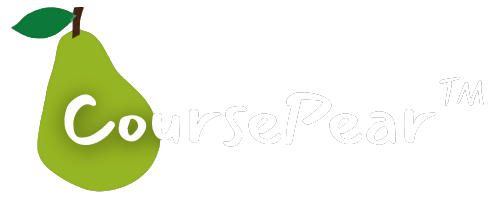🍐 我们总结了York代写中——Paper代写的经典案例,如果你有任何论文代写的需要,可以随时联络我们。CoursePear™ From @2009。
Contemporary Marketing Communications
Students should present a marketing communications campaign plan for the imminent launch of a new brand of alcohol-free beer.
Background
You work for a brand consultancy firm – which has built a successful business providing marketing communications advice to clients who are launching new brands into the competitive consumer products market.
Your client (‘Company A’) has recently developed a new product – alcohol-free beer – to launch into the UK market. However, they understand how competitive the market is and know that their brand will have to differentiate itself from its competitors, in order to appeal to the intended target audience. They also appreciate how critical marketing communications are, in achieving this.
Your client has asked you to propose a marketing communications campaign plan to ensure the successful launch of their new brand, and present a written report containing your proposal.
The product will be available in 330ml bottles – designed to be consumed as an alternative to soft drinks. Pricing will be competitive – in line with similar products already on the market.
• Brand name – this has not yet been selected. Your client is interested in how the brand name can be integrated into the marketing communications to assist in the development of a clear market position. You should propose a brand name.
The challenge your client is facing is: how can this new brand gain awareness, encourage trial and (hopefully) achieve repeat purchasing with a clearly defined target market, within the initial launch period?
You have been asked to provide a communications plan for the brand launch – which uses the principles of IMC (integrated marketing communications) and, is cost- effective (to gain maximum impact from a limited budget).
- Campaign Budget: maximum of £100,000
- Campaign Length: a 3-month campaign built around the brand launch
- Campaign Timing: Your client would like to launch the brand in Summer 2023.
You will need to set a precise launch date in your plan.
- Geographical Market: the brand will only be sold in the UK.
Note: for the purposes of this assignment, any impact of the Covid-19 Pandemic can be ignored.
Structure of the report should follow these guidelines:
You should present your work in report format – including the appropriate use of bullet points, sub-headings, tables and figures.
Executive summary (approx. 200 words)
• A summary of the key points discussed in the report.
Campaign Context
• Market Analysis (approx. 600 words)
Identification and discussion of the critical elements of the market into which the brand will be launched. This should include:
o Assessing the impact of relevant macro and micro factors within the external market environment (for example, market size and characteristics; the competitive landscape; relevant socio-cultural factors, etc. etc.)
o Identifying (and justifying) a gap in the market that your brand will aim
to fill
Note: it is important to base this analysis on referenced evidence from credible sources
- Target consumer (approx. 100 words)
Consumer Profile presented in visual format (examples of consumer profiles will be given). Primarily using behavioural, psychographic characteristics, and including media consumption patterns (this should be aligned to evidence discussed in the previous section) - Brand positioning (approx. 300 words)
o Highlighting the key characteristics of Brand A’s identity and its
competitive positioning in the marketplace (both of which need to be
aligned to the characteristics of the chosen target market).
o A brief explanation of how the brand name will support this positioning.
Campaign objectives (approx.100 words)
- These must be based on SMART criteria, and focused on a new brand launch
- Objectives should be listed in bullet point format
Communications theory to justify the campaign (approx. 1000 words)
• Justify the techniques and media you have selected for the communications
campaign – explaining with reference to relevant communications theory and academic sources
The campaign plan
A visual presentation of the campaign over the 3-month period (excluded from word count):
- Presented in table format (examples will be given)
- Clearly showing the timing of each element
- Showing indicative costings for each element
- Identifying (in visual format) how the principles of integrated marketing
communications planning will be followed Evaluation & Monitoring (approx. 200 words)
• Identifying how the campaign will be evaluated and monitored. Specifically, what and how, will evidence be provided to show that the campaign objectives have been achieved?
Overall word limit: 2500 words
Assignments should be typed, using 1.5 spacing and an easy-to-read 12-point font. Assignments and dissertations/business projects must not exceed the word count indicated in the module handbook/assessment brief.
The word count should:
▪ Include all the text, including title, preface, introduction, in-text citations, quotations, footnotes and any other items not specifically excluded below.
▪ Exclude diagrams, tables (including tables/lists of contents and figures), equations, executive summary/abstract, acknowledgements, declaration, bibliography/list of references and appendices. However, it is not appropriate to use diagrams or tables merely as a way of circumventing the word limit. If a student uses a table or figure as a means of presenting his/her own words, then this is included in the word count.
Examiners will stop reading once the word limit has been reached, and work beyond this point will not be assessed. Checks of word counts will be carried out on submitted work, including any assignments or dissertations/business projects that appear to be clearly over-length. Checks may take place manually and/or with the aid of the word count provided via an electronic submission. Where a student has intentionally misrepresented their word count, the School may treat this as an offence under Section IV of the General Regulations of the University. Extreme cases may be viewed as dishonest practice under Section IV, 5 (a) (x) of the General Regulations.
Very occasionally it may be appropriate to present, in an appendix, material which does not properly belong in the main body of the assessment but which some students wish to provide for the sake of completeness. Any appendices will not have a role in the assessment – examiners are under no obligation to read appendices and they do not form part of the word count. Material that students wish to be assessed should always be included in the main body of the text.
Guidance on referencing can be found in the programme handbook and on Learn ULTRA.
MARKING GUIDELINES
Performance in the summative assessment for this module is judged against the following criteria:
• Relevance to question
o presentation and justification of a campaign which is appropriate for the
new product launch with the intended target market
- Organisation, structure and presentation
o a professional style of report writing, clearly laid out in an appropriate style, logical and easy to follow
- Depth of understanding
o identification of relevant marketing communications theories, concepts and influences that will enable the campaign to shape the consumption choices and practices of consumers, and grounded in the principles of integrated communications planning
- Analysis and discussion
o evidence of both the practical application and theoretical understanding
of contemporary marketing communications
- Use of sources and referencing
o accurate presentation and relevant use of appropriate sources – both academic and practitioner/ industry focused.
- Overall conclusions
o an effective executive summary
The word count should include all the text (plus endnotes and footnotes), but
exclude diagrams, tables, bibliography, references and appendices.
PLAGIARISM AND COLLUSION
Students suspected of plagiarism, either of published work or the work of other students, or of collusion will be dealt with according to School and University guidelines.
Your assignment will be put through the plagiarism detection service.
CoursePear™是一家服务全球留学生的专业代写。
—-我们专注提供高质靠谱的美国、加拿大、英国、澳洲、新西兰代写服务。
—-我们专注提供Essay、统计、金融、CS、经济、数学等覆盖100+专业的作业代写服务。

CoursePear™提供各类学术服务,Essay代写,Assignment代写,Exam / Quiz助攻,Dissertation / Thesis代写,Problem Set代做等。
